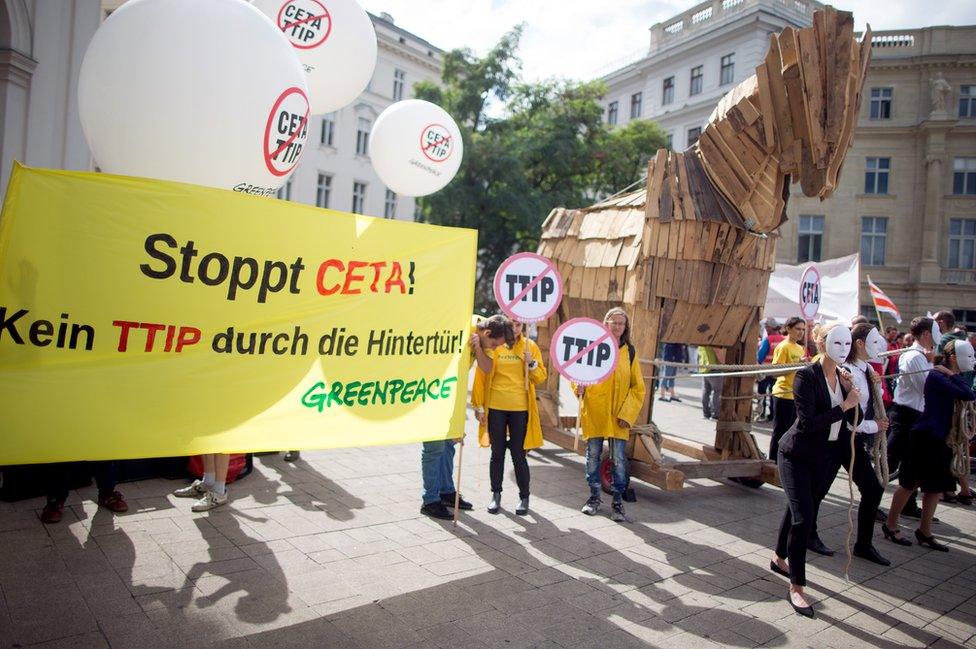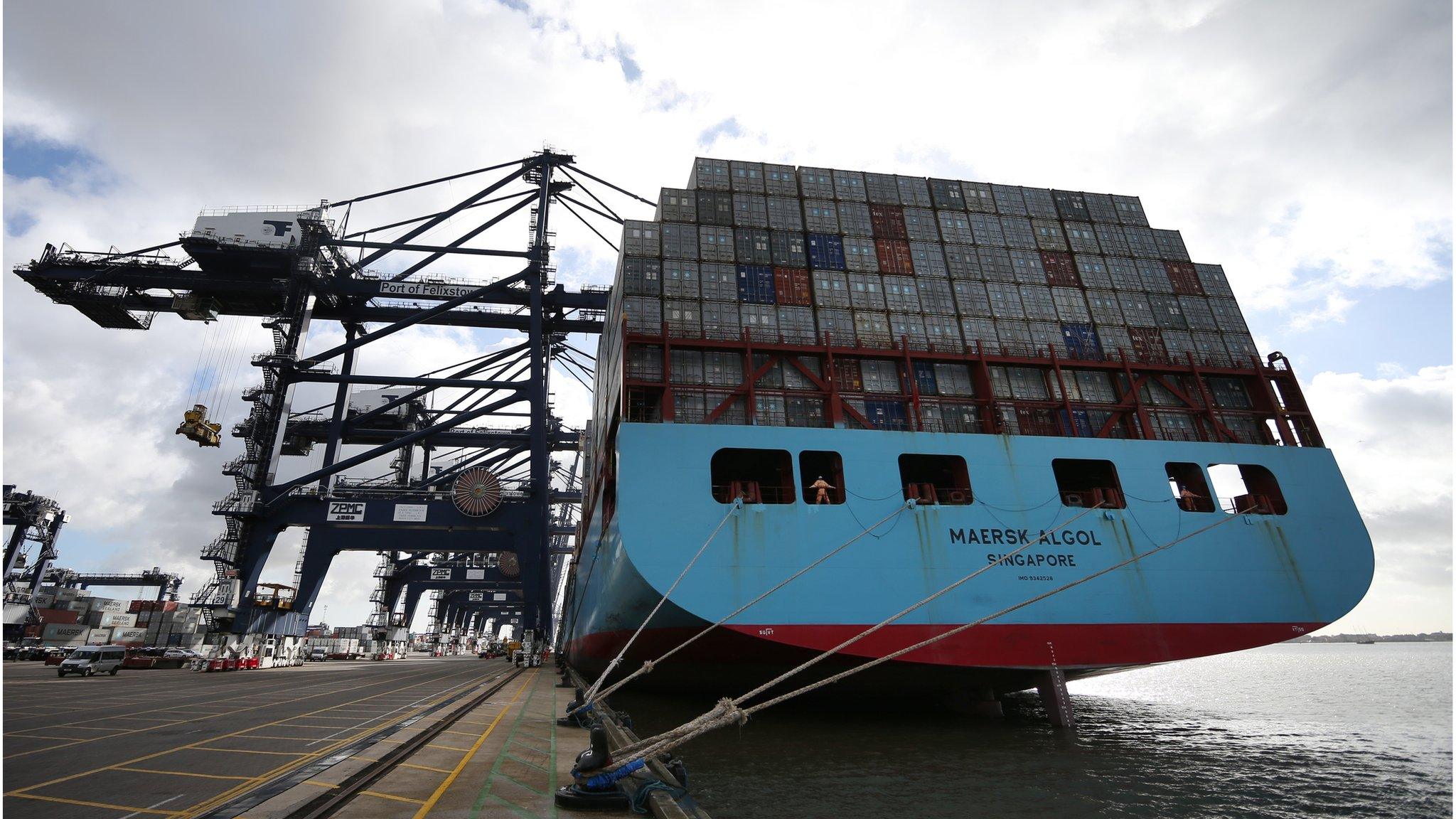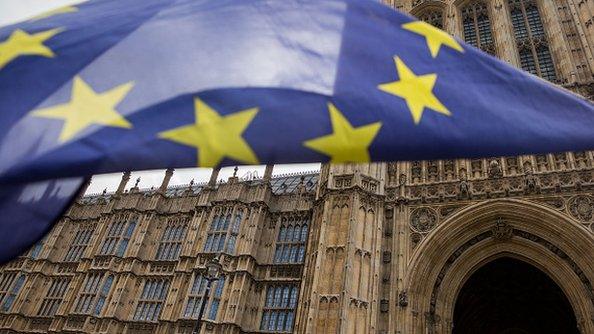EU countries to decide on Singapore trade deal
- Published

The EU-Singapore deal is the bloc's most ambitious trade agreement in South-East Asia
An EU-Singapore free trade deal cannot take effect fully unless parliaments in all 28 member states approve it, the EU's top court has decided.
The legal opinion, external at the European Court of Justice (ECJ) could delay progress towards a UK free trade deal with the EU during the Brexit negotiations.
The European Commission negotiates trade deals on behalf of the EU.
But the ECJ says the EU-Singapore deal, concluded in 2014, has parts that affect powers enjoyed by member states.
Indirect "portfolio" investments and commercial arbitration are issues that need national approval, the ruling said.
The verdict makes it more likely that any UK-EU free trade deal will have to be ratified by national and regional parliaments in the EU.
The Singapore deal, external is not as wide-ranging as the EU-Canada trade deal (Ceta), which was nearly scuppered by objections in Wallonia, the mainly French-speaking part of Belgium.
Ceta will take effect provisionally in the coming weeks, but full implementation still requires the approval of 38 parliaments in the EU - national and regional.
The UK has to negotiate the terms of its exit from the EU by the end of March 2019. But the UK government also wants to make speedy progress towards a comprehensive new trade deal with the EU.
The Commission says the terms of UK withdrawal - including thorny budget issues - must be agreed before any trade negotiations with the UK.
EU power struggle
The Commission saw the Singapore deal as a possible model for future trade negotiations, which might bypass national parliaments, so reducing the risk of a national veto blocking the entire EU.
The EU spent seven years negotiating Ceta - yet the deal nearly collapsed over Wallonia's objections.

Vienna, Sept 2016: Protesters march against Ceta and TTIP with a mock Trojan Horse
But the ECJ ruling ensures that the Ceta model will prevail - that is, a "mixed" agreement requiring approval at both EU and national level.
If the Commission had exclusive powers to clinch free trade deals, the whole process could be speeded up.
But the Council - the EU institution where national governments decide policy - argued that national parliaments should have a bigger say.
Europe saw huge demonstrations against Ceta and the proposed EU-US free trade deal called TTIP.
US President Donald Trump's "America First" agenda has made a TTIP deal look even more remote. The shock of the 2008 financial crisis fuelled protectionism in the US and Europe.

Singtel sales in Singapore: The thriving city state is a magnet for European exporters
The Commission champions free trade, including freedom of movement. Free trade deals, supporters say, open doors for businesses and create jobs by scrapping tariffs and protectionist barriers.
But critics say such deals make it easier for powerful corporations to change the rules in key areas like healthcare and the environment.
Much commercial arbitration is shrouded in secrecy - and critics demand transparency. There is strong opposition to the system for settling disputes between investors and governments, called Investor-state dispute settlement (ISDS).
Public pressure forced the Commission to abandon ISDS in the Ceta and TTIP negotiations. Critics see ISDS as a "Trojan Horse" that can undermine national authorities.
- Published27 June 2016

- Published11 May 2017

- Published25 June 2016
